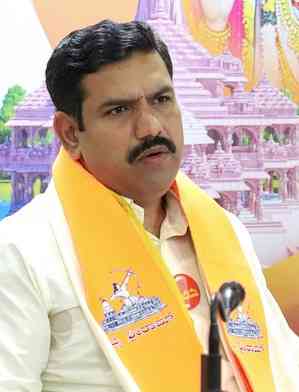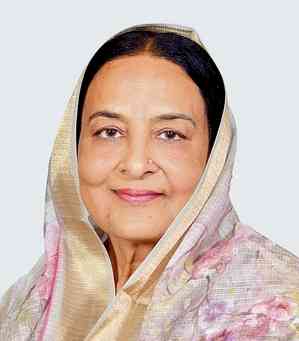OPTIONS FOR CROP RESIDUE MANAGEMENT DISCUSSED AT PAMETI
Author(s): City Air NewsLudhiana, November 10, 2017: Currently high levels of fine particulate matter concentration in the atmosphere has been caused by many factors with burning of crop residue by farmers as one of the major factor. This...

Ludhiana, November 10, 2017: Currently high levels of fine particulate matter concentration in the atmosphere has been caused by many factors with burning of crop residue by farmers as one of the major factor. This causes environmental pollution hazardous to human health, produces greenhouse gases causing global warming and results in loss of plant nutrients etc. Therefore, appropriate management of crop residues assumes a great significance. Keeping this in mind PAMETI organized a five day training on “Crop Residue Management” for the extension functionaries of State Department of Agriculture and Allied Sectors from 6 -10 November, 2017 which was attended by 24 participants.
Dr H S Dhaliwal, Director PAMETI inaugurated the training and narrated that burning causes serious threats to human & animal health, soil health, environment, bio-diversity & traffic etc. He also delineated the alternatives available to manage the crop residue. Experts from Department of Soils, Farm machinery and power engineering, Microbiology, School of Organic Farming, School of Renewable energy engineering of PAU & Department of Veterinary Extension, GADVASU discussed the various options for managing the crop residue in the situ and off the situ. A Panel discussion was organized by Dr Harmeet Kaur, Deputy Director, PAMETI to identify the reasons for burning of crop residues in the fields. Narrow window between harvesting of paddy & sowing of wheat, scarcity of labour, high cost of residue removal from the field and use of combines (Without SMS) in harvesting the crops were the main reasons quoted by the participants. Visit to Ladowal Farm PAU was organized to see Bio char making unit. Participants also visited the fields of Borlaug Institute for South Asia (BISA), Ladowal to see conservation of agriculture based crop management technologies which are more resource-efficient than the conventional practices. The conservation agriculture practices can make efficient use of crop residues.
To see the practical solutions of managing crop residue for power generation, participants visited Bio Mass Energy Ltd, at Gulabewala, Sri Muktsar Sahib. Mr Aman Keshav, Project Director Faridkot co-ordinated the visit and participants were practically shown working of bailer,rake, stuble shaver/cutter and the power generation plant. Mr Sanjeev Nagpal from Sampurn Agriventures Pvt Limited (SAVPL) discussed how his company is using paddy straw to generate Bio CNG and compost. SAVPL is thefirst company in the worldto set up a Biogas plant utilisingonly Paddy Straw as the sole bio fuel.

 cityairnews
cityairnews 















